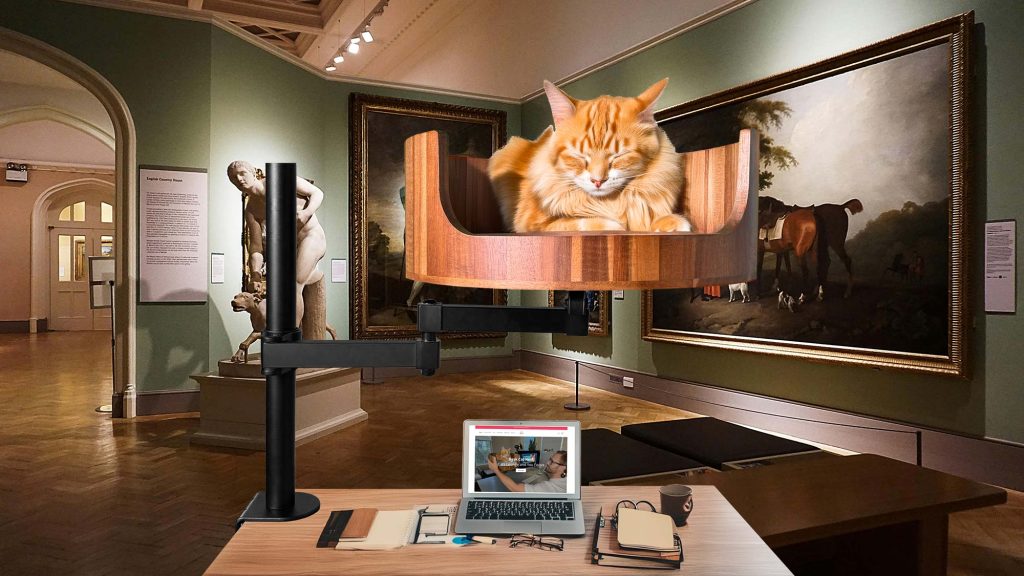Have you ever noticed your cat munching on grass only to later find them throwing up? This behavior may seem strange, but it is actually quite common among cats. Desk Cat Nest explores the reasons behind why cats eat grass and the potential reasons for them throwing up afterward.
Cats are natural carnivores, so it may seem odd that they would be interested in consuming grass. However, grass can actually provide some health benefits for cats, such as aiding in digestion and helping to expel hairballs. Despite this, some cats may have a sensitivity to certain types of grass or may eat too much, leading to them regurgitating it later. Understanding why cats exhibit this behavior can help you better care for your furry friend and ensure their health and well-being. Stay tuned as we delve deeper into the world of cats eating grass and throwing up.
1. Cats eat grass to aid their digestion and eliminate hairballs, it’s a natural behavior that shouldn’t be cause for alarm.
2. Cats may vomit after eating grass, but this is usually a normal response to the ingestion of non-digestible material.
3. The type of grass cats eat matters – some are safer than others, so it’s important to provide cat-safe grass for them to consume.
4. If your cat is vomiting frequently or excessively after eating grass, it may be a sign of an underlying health issue and should be checked by a veterinarian.
5. Understanding and monitoring your cat’s grass-eating behavior can help ensure their overall well-being and health.
## Reasons why cats eat grass
Cats are carnivores, yet many of them have a natural instinct to eat grass. This behavior is believed to be a way for cats to supplement their diet with essential nutrients and to aid in digestion. Some experts also suggest that eating grass helps cats expel hairballs or parasites from their digestive system. Additionally, grass may provide a source of roughage that helps keep a cat’s intestinal tract healthy.
## Risks and benefits of cats eating grass
While grass is generally considered safe for cats to eat in small amounts, there are some risks associated with this behavior. Some grasses may be treated with chemicals or pesticides that could be harmful to cats if ingested. Additionally, consuming large quantities of grass can lead to vomiting or diarrhea in cats. On the other hand, eating grass may have benefits for cats, such as providing relief from digestive issues or helping them regulate their appetite.
## How to prevent cats from eating grass
If you are concerned about your cat eating grass and potentially getting sick, there are a few steps you can take to prevent this behavior. Providing your cat with a safe and stimulating indoor environment with plenty of toys and scratching posts can help keep them entertained and less likely to seek out grass to munch on. You can also try to grow cat-friendly grasses indoors for your cat to nibble on, such as wheatgrass or oat grass, which are safe for cats to consume.
## When to see a veterinarian
If your cat is regularly eating grass and vomiting, it is important to consult your veterinarian to rule out any underlying health issues. Persistent vomiting or other symptoms, such as lethargy or loss of appetite, could indicate a more serious problem that requires medical attention. Your veterinarian can help determine the cause of your cat’s behavior and provide appropriate treatment to ensure their health and well-being.
Frequently Asked Questions
Is the Desk Cat Nest effective in preventing cats from eating grass and throwing up?
While Desk Cat Nest can provide a comfortable and secure space for your cat to rest and play, it may not directly address the underlying cause of your cat’s behavior. We recommend consulting with a veterinarian to determine the best course of action for your cat’s specific needs.
Can using the Desk Cat Nest replace a visit to the vet for my cat’s grass-eating and vomiting issues?
No, it is important to always consult with a veterinarian for any health concerns regarding your cat. While Desk Cat Nest can offer a cozy and calming space for your cat, it is not a substitute for professional medical advice and treatment.
How can the Desk Cat Nest help with my cat’s grass-eating and vomiting behavior?
Desk Cat Nest provides a safe and secure environment for your cat, which can help reduce stress and anxiety that may contribute to grass-eating and vomiting. By offering a designated space for your cat to relax and play, Desk Cat Nest may help alleviate some of the triggers for these behaviors.
Are there specific features of the Desk Cat Nest that can help discourage grass-eating and vomiting?
Desk Cat Nest is designed to be a comfortable and inviting space for cats, with soft materials and ample room for rest and play. While it may not directly discourage grass-eating and vomiting, providing a designated area for your cat to relax can help create a sense of security and reduce stress levels.
In conclusion, the Desk Cat Bed is a valuable solution for cats who are eating grass and experiencing vomiting episodes. By providing a comfortable and secure space for your cat to relax and rest, the Desk Cat Bed helps reduce stress and anxiety that may be causing your cat to seek out grass for relief. Additionally, the elevated design of the bed can help prevent your cat from ingesting grass while also promoting better digestion and overall health. With its easy assembly and durable construction, the Desk Cat Bed is a smart choice for cat owners looking to address their feline companion’s grass-eating habits and prevent unwanted vomiting.


